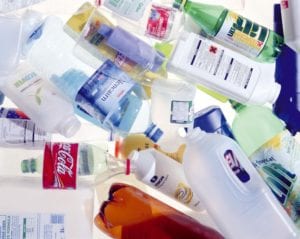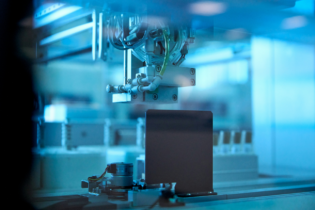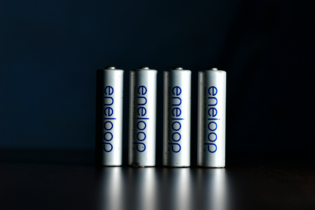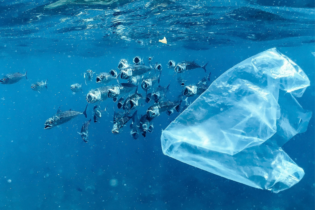Plastics get the spotlight in this edition of RéSource. We take a look at the plastics recycling survey results and Plastics SA’s achievement at The Green Expo.
Fulfilling its mandate of promoting the responsible and sustainable use of plastics as a material, Plastics SA conducts annual surveys into the state of plastic recycling in the country. A complete survey of the plastics recycling industry in South Africa was concluded in 2009, with the updated estimates for 2010 recently released. According to the updated recycling figures released by Plastic SA, the recycling of plastics in the country has shown a steady increase during 2010. There were 194 recyclers operating in 2010, who have managed to: • Recycle 241 853 tons of plastics• Provide 4 800 jobs
• Create 35 000 indirect jobs with an annual payroll of R240 million Tonnages recycled
“The most significant impacts of plastics recycling were job creation, the reduction of carbon footprints and the re-use of non-renewable resources,” says Anton Hanekom, executive director of Plastics SA. According to Hanekom, the most recent survey reveals that the recycling rate of plastics (all plastics converted) has increased to 18%. “These statistics clearly show that there is a growing demand for recycled plastics that has proven it to be versatile, economic and reliable,” Hanekom says.
Similarly, the growth in virgin material consumption showed a 4.7% increase (from 1 280 thousand tons to 1 340 thousand tons) during the same period.
Plastics packaging
Out of the 241 853 tons of plastics that were recycled, 182 032 tons was plastics packaging. This is an increase of 6% which is mainly due to the increased recycling rates for PE-LD/LLD (e.g. pallet wrap, shrink wrap, shrouds, liners, bags, form-fill and seal packaging, general flexible packaging, protective wrapping, bubble wrap etc) and PET beverage bottles. The total amount of plastics packaging in the waste stream was recorded as 605 000 tons in 2010. The derived recycling rate for plastics packaging is therefore 30.1 % .
Plastics packaging recycling rates will be even be higher, thanks to Tiger Brands’ decision to stop using oxo-biodegradable bread bags. SAPRO (South African Plastics Recycling Organisation) welcomes this decision as all bread packaging can now be recycled, a development which will improve the recycling rates for PE-LD/LLD. Provincial representation
The 2010 survey results indicated that the average tonnage per recycler has increased in Gauteng, Limpopo and Mpumalanga as well as in the Eastern Cape and the Western Cape. “The overall tonnage increased by 17% from 2009 to 2010 in the Western Cape and the tonnage per recycler with 10%. A number of separation at source collection systems are in place in the Western Cape and the increased tonnage could be a result of more recyclable material of improved quality that became available in 2010. Similar initiatives have also started towards the end of 2010 in Gauteng and it remains to be seen if the recycled tonnage will increase as a result of more and cleaner available recyclables,” Hanekom explains. Source of recyclable plastics
Interestingly, the survey also reveals a definite change in the source of recyclable plastics waste from 2009 to 2010. Pre consumer materials increased 38% and post-industrial materials increased by 44% while post-consumer and landfill materials dropped by 14%. “We attribute this change to the 2010 economy,” Hanekom says. “In an attempt to reduce operating costs, recyclers sourced cleaner materials to recycle, hence the increased figures for post-industrial and pre consumer materials.”
Hanekom said consumers, recyclers and the industry as a whole have a huge role to play in helping the recycling statistics to increase. “We believe that the largest growth potential in recycling lies in post-consumer, household recyclables. However, the costs of washing and drying are prohibiting recyclers from sourcing more post-consumer and landfill recyclables,” he continues.
Other hindrances facing local recycling operations include the high cost of water and electricity, wages, transport, repairs and maintenance required on the recycling plant and its equipment. “Whilst a number of larger recyclers were able to overcome these obstacles by investing heavily in their recycling plants in order to improve efficiencies of their washing and drying facilities, we need government’s support and a collective effort to find more energy efficient solutions in the years to come.” The Packaging and Paper Industry Waste Plan submitted to the Department of Environmental Affairs earlier in 2011 stated an overall plastics packaging recycling rate of 35% by 2015. The last updated statistics for 2010 indicates that this could be achieved as long as the current growth rates are maintained. Enviropedia Award for recyclingOn a different note, Plastics SA was awarded the 2011 Enviropaedia Award for Recycling at the inaugural Eco-Logic Awards ceremony which took place in Cape Town in November 2011, in partnership with The Green Expo. “We are honouring companies and individuals who are helping us fight both the symptoms and the causes of environmental problems,” says David Parry-Davies, editor of The Enviropaedia, South Africa’s reference to the green revolution and the driving force behind the awards. The organisation impressed the judges with its ongoing commitment to increase public awareness about the importance of plastic recycling through its various Enviromark activities. Under the auspice of its sustainability director, Douw Steyn, this non-profit organisation has launched and driven numerous annual activities through the years, including initiatives such as National Recycling Day, Clean-Up South Africa Week and the international Coastal Clean-Up Day which takes place in September every year. The Enviromark and its team of eco-warriors have also become a familiar sight at large international sporting events such as the annual Cape Argus/Pick ‘n Pay Cycle Race and the Two Oceans Marathon where they pick up and recycle the litter that gets left behind by participants and supporters. “Plastics are often unfairly blamed for polluting the environment,” said Steyn after he received the award. “However, we are trying to educate the public that plastics don’t littler – people do. Used plastic packaging or discarded plastic products shouldn’t end up in landfills. We have a thriving, innovative and successful plastic recycling industry in South Africa that creates new products from virtually every type of plastic – whether it is used water bottles, plastic shopping bags or yoghurt tubs.”







